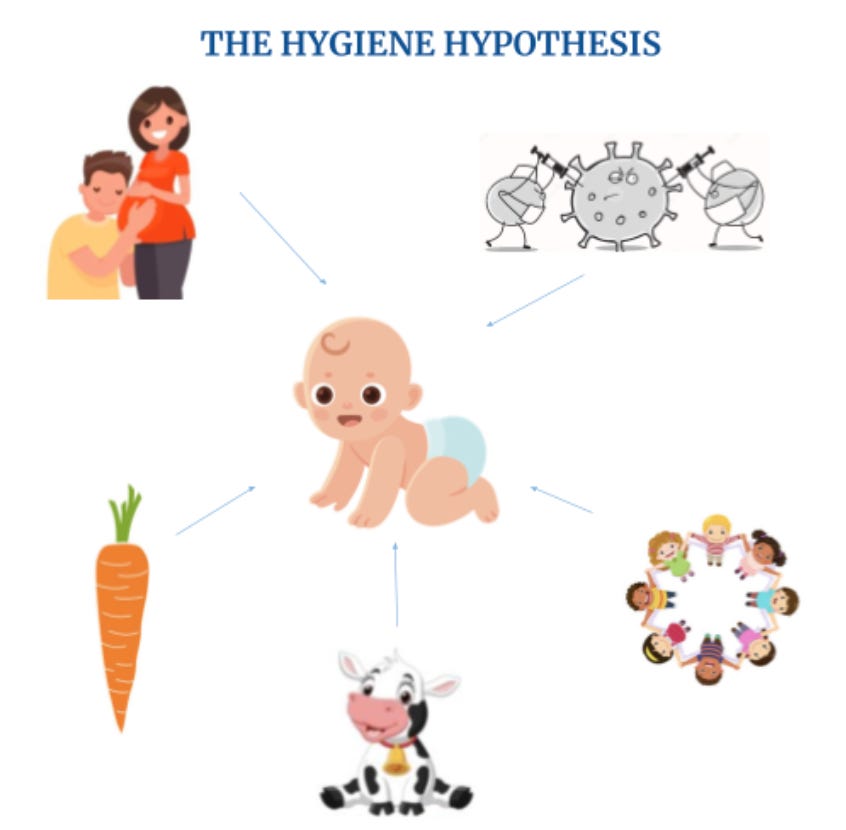Hygiene Hypothesis
Written by Ayebamiebi Yousuo
Introduction
Even as medicine continues to evolve and advance, there are still a lot of grey areas to which we are uncertain, and this also results in different perspectives and explanations for these uncertainties leading us to what we term, ‘hypothesis’, and the hygiene hypothesis is one of such explanations.
What is the hygiene hypothesis?
The hygiene hypothesis is a theory that suggests early childhood exposure to germs helps develop a healthy immune system. It states that “a lack of early childhood exposure to infectious agents, symbiotic microorganisms (such as gut flora), and parasites increases susceptibility to allergic diseases and autoimmune conditions by suppressing the natural development of the immune system”.
What best describes the hygiene hypothesis?
Research has shown that the prevalence of reported cases of Atopic disorders, notably atopic asthma is higher in developed countries like the UK as compared to developing countries as seen in Africa and the hygiene hypothesis suggests that due to the pronounced civilization and urbanization leading to microbial deprivation in such developed countries, there has been a delay and weakening of the natural development of the immune system in such countries making them hypersensitive and more prone to allergies.
Who discovered the hygiene hypothesis?
Dr. David Strachan, an epidemiologist formulated the ‘hygiene hypothesis' in 1989 where he reported an inverse relationship between family size and the development of atopic disorders, and proposed that a lower incidence of infection in early childhood, transmitted by unhygienic contact with older siblings or acquired pre-natally could be a cause of the rise in allergic diseases. Subsequently, as the concept was further explored by specialists in allergy and immunology, it evolved into the broader notion that declining microbial exposure is a major causative factor in the increasing incidence of atopy in recent years.
Conclusion
The hygiene hypothesis doesn't seek to take away the place of personal hygiene but seeks to explore the role of microbes and overcrowding in the natural development of the immune system and decrease in the development of Atopic Disorders.
Written by Ayebamiebi Yousuo from MEDILOQUY


